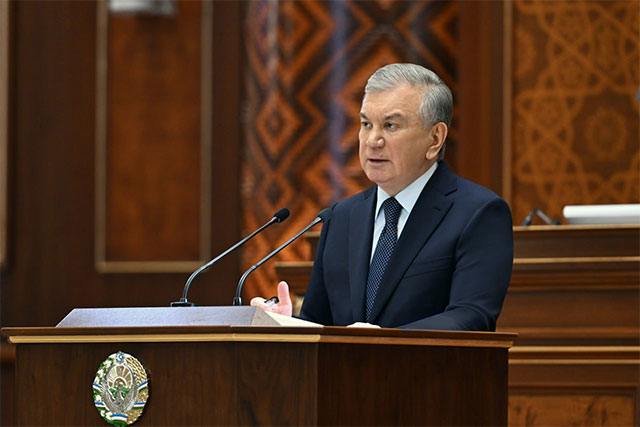
Uzbek President harshly criticizes the Anti-Corruption Agency
Uzbek President harshly criticizes the Anti-Corruption Agency
Tashkent, Uzbekistan (UzDaily.com) — During an expanded session of the National Anti-Corruption Council on 5 March, President of Uzbekistan Shavkat Mirziyoyev expressed strong dissatisfaction with the performance of the Anti-Corruption Agency.
The president noted that instead of actively working in ministries and regions, analyzing problematic areas, and developing concrete solutions, the agency’s staff had become "mere statisticians," limiting their role to counting the number of criminal cases initiated.
He criticized the agency’s leadership for failing to conduct inspections in some of the most corruption-prone sectors, such as district health departments, employment services, and bank branches. He also pointed out the lack of proactive efforts by sectoral leaders to establish "corruption-free" systems.
Mirziyoyev recalled that only after stricter oversight of investment programs, implemented at his directive, was the government able to save 3 trillion soums last year. Additionally, the launch of the "Situation Center" in the healthcare system in 2024 prevented the misallocation of 1.2 trillion soums.
"But why should these measures only be taken after the president intervenes?" he questioned, emphasizing the lack of initiative among responsible authorities.
The president also criticized the passive role of parliamentary budget committees, which he said fail to take the initiative in identifying corruption risks and revising the operations of the three largest ministries that receive the bulk of budgetary funds.
He further addressed shortcomings within law enforcement agencies, stating that while they focus on detecting and punishing corruption, they neglect preventive measures aimed at eliminating its root causes.
Despite the presence of 1,285 employees in "internal anti-corruption control" units across 117 ministries and agencies, their actual impact remains negligible, Mirziyoyev said.
The president also highlighted bureaucratic barriers hindering business development. While numerous decisions are made annually to improve the business climate, attract investment, and create jobs by eliminating administrative obstacles, entrepreneurs still face excessive requirements.
For example, businesses must obtain compliance assessments for 6,500 types of products, with 3,700 requiring a separate certificate for each batch. Similar restrictions exist in sanitary, quarantine, and veterinary services, while customs authorities must adhere to these regulations.
However, compliance officers in ministries and agencies have failed to propose any initiatives to reduce these requirements, which complicate business operations and create opportunities for corruption, the president stressed.